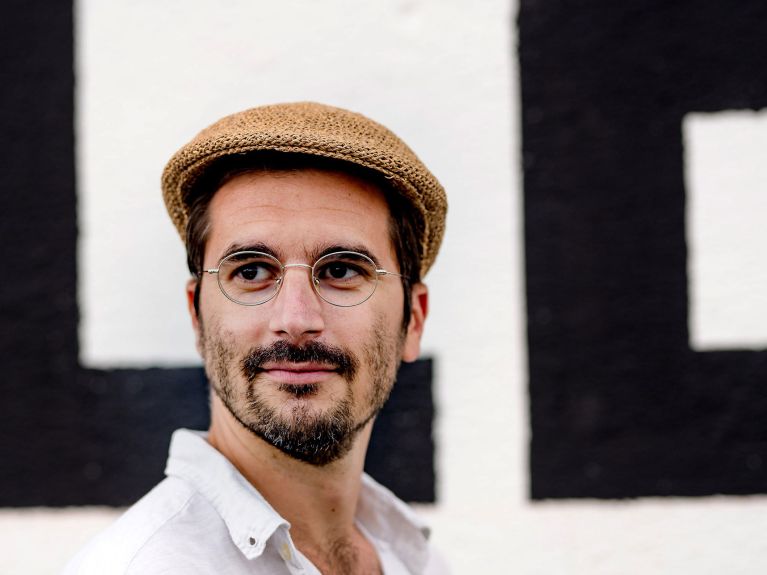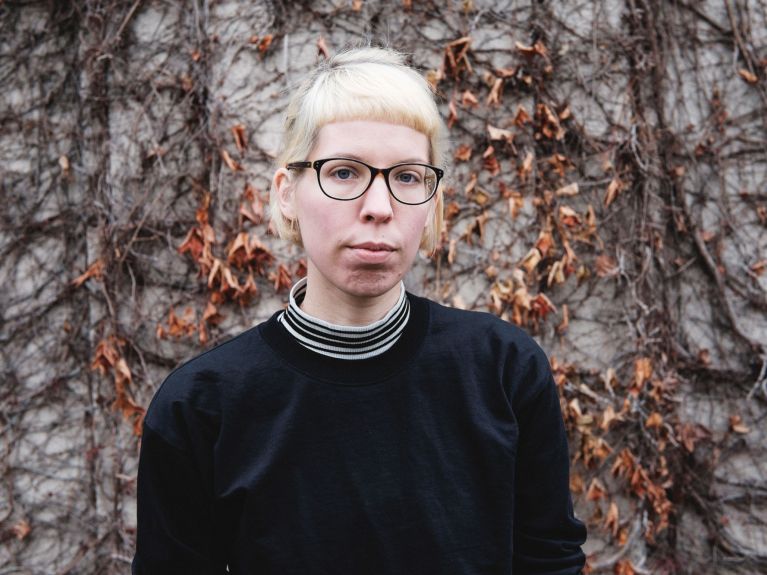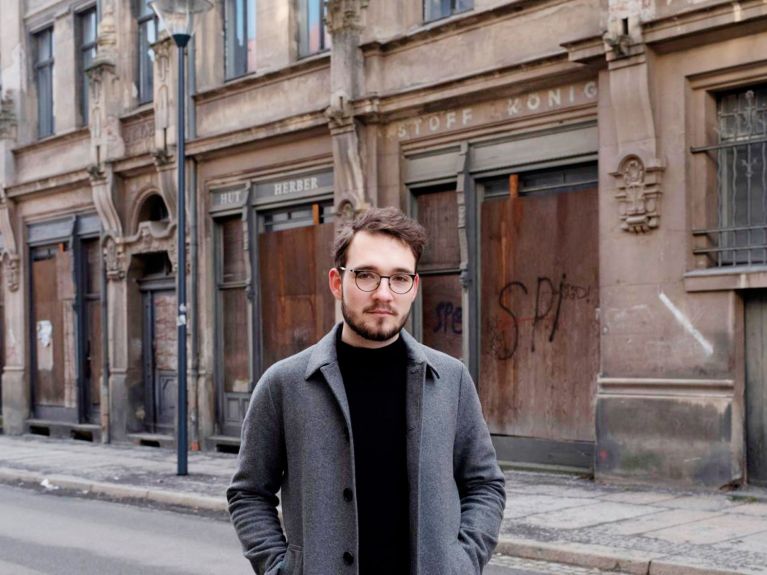The bestsellers of tomorrow
Three novel debuts you should know about if you want to join in the discussions at the Book Fair.

Philipp Weiss: Am Weltenrand sitzen die Menschen und lachen (On the Edge of the World People Are Sitting and Laughing)
What’s it about?
A project that defies summary. So much then with absurd brevity: 17-year-old Paulette experiences the insurrection of the Paris Commune in 1871, is one of the first European women to travel to Japan and lies safely in the ice of the French Alps for more than 130 years. Her great-great-granddaughter Chantal follows her tracks to the Far East. Jona, the artist whom Chantal has abandoned, searches for her in Japan, and thereby falls into a multiple disaster: an earthquake, a tsunami, a nuclear accident. At the same time, the nine-year-old Akio walks through ruined territory and finds Satoshi, a day labourer and nuclear power plant nomad, who is slowly dying from the effects of radiation.
What is special about it?
Certainly the most ambitious, perhaps the craziest literary project of the year: 1,000 pages, five volumes – a novel. Philipp Weiss has his figures sit on the edge of the world and tells of the transformation of this world in our age, in which man shapes the earth - not only for the good. Weiss mixes encyclopaedia, narrative, notebook, audio transcription and comedy, jumping effortlessly from the nineteenth century to the present and back again. A daring, crazy, slightly megalomaniac epic.
Who should read it?
Patience and perseverance are certainly needed. But for those who love books beyond the mainstream, for those who have mastered the art of sometimes skimming over a few pages, this panopticon of a book will be a reading feast. Anyone who likes and can cope with such challenges will love Philipp Weiss.

Bettina Wilpert: Nichts, was uns passiert (Nothing That Happens to Us)
What’s it about?
The summer of the 2014 World Cup. Everywhere public viewings and parties. The 27-year-old student Anna meets Jonas; they have a not very romantic one-night stand. When they meet again at a party a few days later, Jonas wants to repeat it. Anna is too drunk to fight back, but she says no – which he ignores. After two months of anger and depression, she manages to file a complaint. Jonas says he heard no “no”.
What’s special about it?
With apparent neutrality, the novel reproduces what each of the figures went on record saying: Anna and Jonas, but also siblings, friends, activists. Although the reader is automatically on Anna’s side, he or she is forced by the ever-new perspectives to acknowledge that the story is more complex than that, that there can’t be a simple good and evil. But the author leaves no doubt that Anna has every right to feel abused.
Who should read it?
This is a book that concerns everyone. Men, because they can learn to pay attention to signals and the consequences of overbearing behaviour, even if they (like Jonas in the novel) don’t think themselves to be in the least bit a rapist. Whether Anna’s behaviour will give women courage is difficult to say. But that there is no other way to recover lost self-esteem at least to some extent is made more than clear in the book’s 170 pages, in which all the consequences, all the questions and contradictions are played through.

Lukas Rietzschel: Mit der Faust in die Welt schlagen (Beat Your Fist into the World)
What’s it about?
Novels of this kind are now called in good German “coming-of-age” stories, since the term “Entwicklungsroman” seems too uncool. But that doesn’t matter, because the brothers Philipp and Tobias, whose lives are narrated here from 2000 to 2015, from elementary school to their entry into the seriousness of life (they work!), are very clearly recognizable as typical representatives of their generation. They live in the brown coal mining region in Saxony, surrounded by hard work and hopelessness, emigration and the growing influence of neo-Nazis on the young people.
What’s special about it?
The novel doesn’t gloss anything over. In clear, almost brittely dry language, Rietzschel does without with profound psychologizing explanations. He doesn’t condemn his protagonists, although Tobias increasingly comes under the influence of a radical right-wing extremist.
Who should read it?
Anyone who wants to know what is currently going on in the hearts and minds of many young people. Who wants to know why teenagers are often full of inarticulate anger. Certainly the most topical debut novel of this autumn, written with frightening inside knowledge the trouble.
